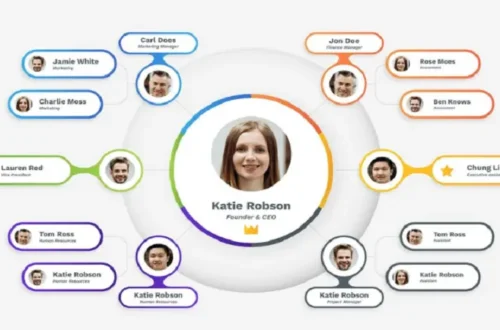A New Frontier in Education has become a prominent theme in today’s educational landscape. The traditional classroom environment is evolving with technological advancements and shifting educational paradigms. This transformation is particularly evident in primary education, where online platforms are increasingly utilized to deliver a comprehensive curriculum.
The Rise of Online Education: A Historical Perspective
Online Primary School in the UK: A New Frontier in Education has emerged as a transformative shift in the educational landscape, with historical roots tracing several decades.
The idea of online education began in the latter half of the 20th century, primarily within higher education institutions seeking to provide remote access to learning materials.
As Internet technology advanced in the 1990s, online education platforms became more accessible, setting the stage for broader adoption across various educational levels.
Early Adoption and Technological Milestones
The introduction of Learning Management Systems (LMS) in the early 2000s marked a significant advancement in online education.
These systems allowed for structured content delivery, interactive assignments, and assessments, facilitating a more comprehensive learning experience.
This period saw the integration of multimedia tools, enhancing engagement and fostering an environment conducive to learning for primary, secondary, and tertiary education.
The Impact of Globalisation and Technological Innovations
Globalization played a pivotal role in the spread of online education, with educational content becoming increasingly shared across borders.
Technological innovations like broadband Internet, mobile devices, and interactive software further propelled online education into mainstream acceptance.
These developments not only improved accessibility but also increased the quality of education accessible online, thereby nurturing the possibility of Online Primary Schools in the UK as a viable educational model.
Recent Trends and the Current Landscape
In recent years, the demand for flexible and accessible learning options has driven the expansion of online education, particularly in the primary school sector.
The COVID-19 pandemic accelerated this trend, with schools worldwide adopting online platforms to continue providing education amid lockdowns and social distancing measures.
This shift has solidified online education’s position as a critical component of the modern educational system, leading to the growth of institutions like Thomas Keith and Lady Evelynl, which offers comprehensive online learning programs for primary, secondary, and sixth-form students.
Benefits of Online Primary Schooling
The concept of the Online Primary School in the UK: A New Frontier in Education has rapidly gained momentum, offering unparalleled advantages to learners and educators alike.
Flexible Learning Environment
One of the most significant benefits of online primary schooling is its flexibility. Students can learn at their own pace, allowing them to revisit challenging subjects and accelerate through others where they excel.
This self-paced learning can cater to the diverse learning needs of primary school students, enhancing their educational experience.
Access to Extensive Resources
Online primary schools provide access to many resources that traditional schools may not offer. Digital libraries, interactive tools, and multimedia content enrich the learning experience, making complex subjects easier to understand.
Such access ensures that students consume information passively and actively engage with content.
Individualised Education Plans
Online Primary Schools in the UK enable the implementation of personalized education plans tailored to each student’s strengths and weaknesses.
Teachers can leverage data analytics to track progress and adjust lesson plans, providing individual support where necessary.
This approach helps address specific learning needs and furthers each child’s academic growth.
Safe and Nurturing Environment
Another advantage is the safe learning environment that online primary schooling offers.
Without the need for physical commuting, students are less exposed to potential safety risks.
Furthermore, this setup can significantly reduce instances of bullying, as interactions are monitored within controlled digital platforms, promoting a healthier and more inclusive atmosphere.
Preparedness for the Digital Age
Children enrolled in online primary schools develop crucial digital skills early on, preparing them for the demands of a technology-driven world. Proficiency in digital tools becomes their foundation for future education levels and career opportunities.
Students become adept at navigating and utilizing technology effectively by engaging with digital platforms regularly.
The Online Primary School in the UK: A New Frontier in Education thus stands as a transformative force, addressing modern educational challenges with innovative solutions.
Its numerous and far-reaching benefits make it attractive for parents and educators looking to offer their children a contemporary and practical educational experience.
Challenges Faced by Online Primary Schools
Establishing the Online Primary School in the UK: A New Frontier in Education has opened new doors for learning but also presented several challenges that schools, including Thomas Keith Independent School, must navigate.
Technological Barriers
One of the primary challenges online primary schools face is ensuring equitable access to technology. Not all students have stable internet connections or the necessary devices to participate in online lessons effectively.
This digital divide can create significant learning disparities and impede the school’s mission to provide quality education to all students.
Maintaining Student Engagement
Another challenge is maintaining student engagement in a virtual environment. With the traditional classroom’s social and physical interactions, students may find it easier to remain attentive and motivated.
Online primary schools must devise innovative teaching methods and interactive tools to capture students’ interest and encourage active participation.
Assessing Student Performance
Assessment in the online context poses unique difficulties as well. Ensuring assessments accurately reflect students’ understanding and skills without direct supervision can be problematic.
Online primary schools must develop reliable assessment frameworks that accurately measure student performance while ensuring academic integrity.
Social Development Concerns
Social development is another critical area impacted by online schooling. Physical classroom settings naturally facilitate social interactions, crucial for developing communication skills and teamwork.
Online primary schools are tasked with finding creative solutions to simulate these interactions, ensuring students take advantage of these vital aspects of education.
In conclusion, while the Online Primary School in the UK represents a promising new frontier in education, overcoming these challenges is essential for its success and for providing an inclusive and comprehensive learning experience for all students.
How Online Primary School Works
Online primary schools use an application similar to traditional schools to assess students’ technical demands and learning environment. Daily routines may include live virtual courses, solo projects, and interactive tasks with teachers and peers via digital platforms.
Curriculum and Accreditation
Online primary schools in the UK must adhere to the national curriculum, although they often offer additional subjects and innovative teaching methods. These schools are subject to standard inspections and accreditations to meet educational standards.
Technology Requirements
Participation in online schooling requires essential equipment such as a computer, a reliable internet connection, and headphones. Schools usually provide software for classroom interactions, including learning management systems and communication tools.
Role of Parents in Online Primary School
Parents play a critical role in online education, facilitating technology use and supporting their children’s learning by monitoring their progress and providing motivation.
Teacher Qualifications and Training
Online teachers must have the same qualifications as traditional teachers but receive additional training to teach online and engage students remotely.
Student Assessment and Progress Tracking
Students are thoroughly assessed in online schools using traditional tests and interactive projects. Communication via digital channels allows for timely and constructive criticism.
Extracurricular Activities and Social Interaction
To address the lack of physical interaction, online schools offer a range of extracurricular activities and virtual meet-ups, promoting social skills and community building among students.
Cost of Online Primary School
The cost of attending an online primary school can vary, often depending on the resources offered. While some schools may be more affordable than traditional settings, others might offer scholarships to help cover costs.
Case Studies: Successful Online Primary Schools in the UK
A New Frontier in Education offers a unique window into how innovative approaches can produce outstanding results. To illustrate this point, we explore various case studies of successful online primary schools, highlighting their distinctive strategies and the practical outcomes achieved. These examples demonstrate the transformative potential of online education for primary schools in the UK.
Thomas Keith Independent School
Thomas Keith Independent School is at the forefront of this educational evolution, serving as a leading Online Primary School in the UK. By employing adaptive learning technologies and personalized curriculum plans, Thomas Keith caters to the unique learning styles of its pupils. The school’s integration of interactive modules and personalized feedback ensures that learning is engaging and effective. As a result, students at Thomas Keith regularly outperform their traditional school counterparts across various assessments.
Lady Evelyn Independent School
Another noteworthy example is the Lady Evelyn Independent School, known for its pioneering use of digital platforms to simulate classroom experiences. Lady Evelyn offers a rich tapestry of multimedia resources, including video lectures, digital excursions, and collaborative online projects. Their innovative “learn by doing” approach has proven successful, fostering creativity and critical thinking skills among young learners. By maintaining a high level of participation from both instructors and parents, Virtual Learning Primary Academy ensures a comprehensive support network for students.
Future Prospects of Online Primary Education
One of the critical prospects is the increased accessibility to quality education for children in remote or underserved areas. Online primary schools can bridge the educational gap by bringing lessons to homes, thus eliminating the geographical barriers associated with traditional schooling. This shift towards inclusivity ensures that all children, regardless of location, have access to a robust education, fostering a more equitable learning environment.
Technological advancements will play a crucial role in the development of online primary education. Innovative tools and platforms will enhance the interactivity and engagement of online lessons, making learning more immersive for students. Integrating artificial intelligence and machine learning can personalize learning experiences, adapting to each student’s pace and style. This personalization ensures that students receive the support they need to excel academically.
Furthermore, the flexibility offered by online primary schools allows for a more adaptive curriculum. The curriculum can be continuously updated to reflect the latest educational trends and requirements, ensuring students are equipped with current knowledge and skills. This adaptability enables educators to implement innovative teaching methodologies, ultimately preparing students for future challenges.
Another promising aspect is the potential for increased collaboration and cultural exchange among students from different backgrounds. Online platforms enable interactions beyond national borders, allowing students to broaden their perspectives and develop a global understanding. This cultural exchange fosters a sense of global citizenship, encouraging students to appreciate diversity and collaborate effectively in an increasingly interconnected world.
In conclusion, the prospects of Online Primary Schools in the UK: A New Frontier in Education are bright and transformative. As the education landscape continues to evolve, online primary schooling is set to redefine traditional educational paradigms, offering a more inclusive, flexible, and technologically advanced approach to learning. The potential for growth and innovation in this field ensures that online primary education will remain a vital component of the educational ecosystem, benefiting students, educators, and society.
Choosing the Right Online Primary School
To satisfy student needs, examine curriculum, teacher qualifications, technology assistance, and extracurricular possibilities while choosing an online primary school.
Conclusion
As we look toward the future, Online Primary Schools in the UK represent a new educational frontier.
With advancements in technology and an increasing demand for flexible learning options, online education is set to transform how primary education is delivered.
The adaptability of online platforms allows educators to craft personalized learning experiences that cater to the diverse needs of pupils, making education more inclusive and accessible.
However, with innovation, effort, and strategic planning, these hurdles can be overcome to yield an education system that serves all learners better.
The potential for online education to reshape the educational landscape is immense, promising an engaging and enriching experience for students of all ages, from primary through to sixth form.
In conclusion, embracing Online Primary Schools in the UK as a new frontier in education is crucial
FAQs about Online Primary Education
Online Primary Schools in the UK: A New Frontier in Education has sparked numerous inquiries from parents, students, and educators alike. This section addresses the most frequently asked questions about this innovative learning mode.
What is Online Primary Education?
Online primary education refers to delivering educational content and instruction to primary school students through digital platforms. It allows students to learn from home or anywhere with internet access, fostering a flexible and personalized learning environment.
How Does Online Learning Compare to Traditional Classroom Teaching?
Online primary education offers unique advantages, such as flexible scheduling, customized learning paths, and access to a broader range of resources. However, it may also lack the social interaction found in traditional classrooms, which is crucial for developing interpersonal skills in young learners. Balancing these factors is essential when considering online education as a viable option.
Is Online Primary School Accredited?
Many online primary schools in the UK are accredited and meet national educational standards. Schools like Thomas Keith and Lady Evelyn ensure their curriculum aligns with the requirements set by academic authorities, providing parents and students with confidence in the quality of education offered.
What Technological Requirements Are Needed?
To join any online primary education school, students typically need a reliable computer or tablet, a stable internet connection, and access to educational software and resources. Schools often provide guidelines to help families set up the necessary technology at home.





